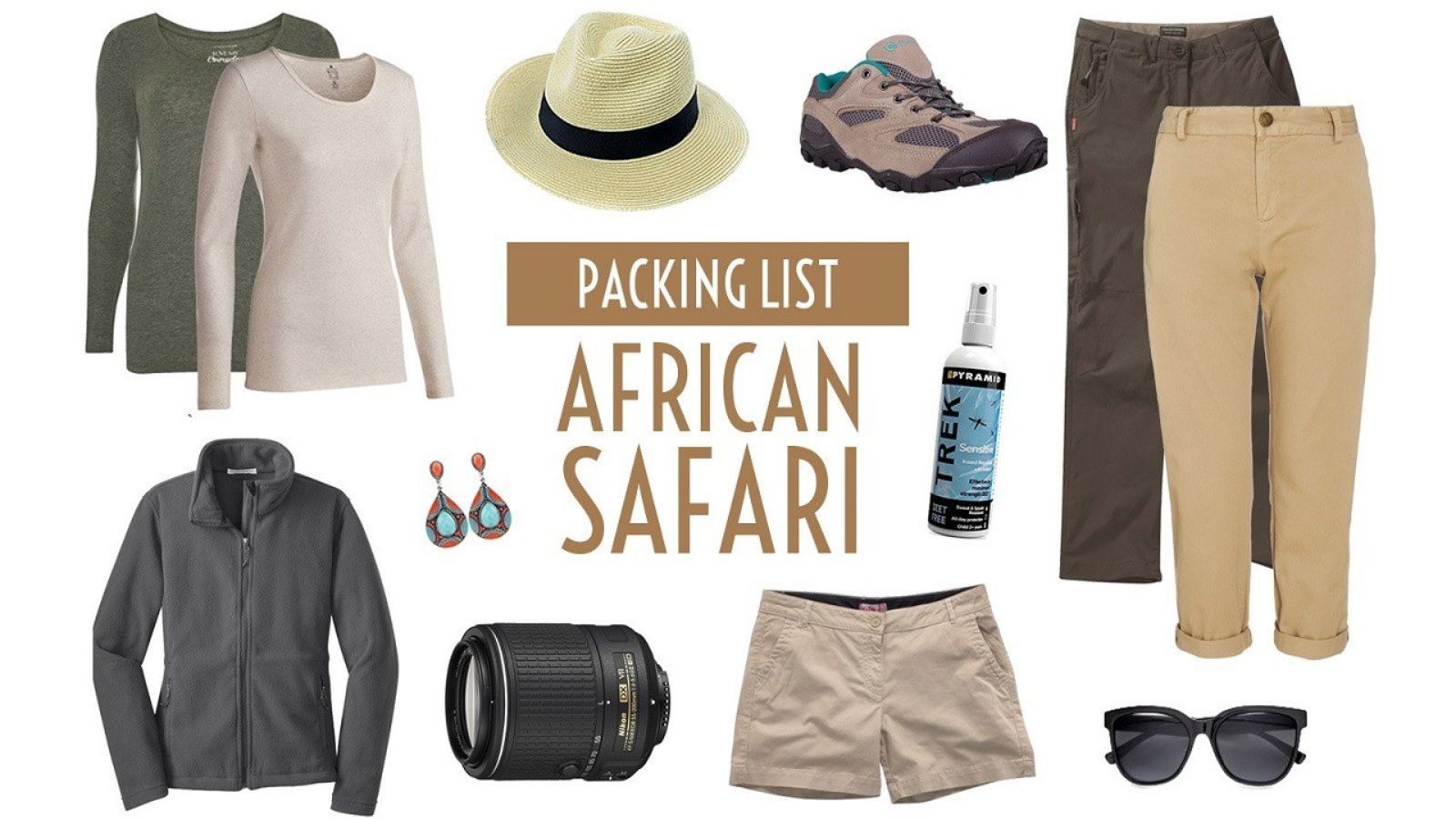Ultimate Safari Packing Guide: What to Pack for an African Safari
Preparing for an African safari requires careful consideration of the essentials to ensure a smooth and enjoyable experience amidst the wild beauty of the savannah. From the scorching sun of the day t
home / News & BlogsWorldSwiftVoyagers | April 1, 2024, 10:21 a.m.
Ultimate Safari Packing Guide: What to Pack for an African Safari

Ultimate Safari Packing Guide: What to Pack for an African Safari
Embarking on an African safari is an exhilarating adventure, but proper packing is essential to ensure a comfortable and memorable experience amidst the wilderness. From clothing suitable for varying climates to essential gear for wildlife viewing, this ultimate safari packing guide will equip you with everything you need for an unforgettable journey into the heart of Africa.
Clothing:
-
Lightweight, Neutral-Colored Clothing: Opt for lightweight, breathable clothing in neutral colors such as khaki, tan, and olive green to blend in with the natural surroundings and avoid attracting insects. Pack long-sleeved shirts and pants to protect against the sun and potential mosquito bites.
-
Comfortable Walking Shoes: Choose comfortable, closed-toe shoes with good traction for walking safaris and outdoor activities. Sneakers or hiking boots are ideal for traversing uneven terrain and providing support during long walks.
-
Hat with Wide Brim: A wide-brimmed hat offers essential protection from the sun's harsh rays, helping to prevent sunburn and heatstroke. Look for a hat with UPF (Ultraviolet Protection Factor) for added sun protection.
-
Safari Vest or Jacket: A lightweight, multi-pocketed vest or jacket is handy for storing essentials such as sunscreen, insect repellent, and a camera. Opt for a breathable, quick-drying fabric to stay comfortable in varying temperatures.
-
Fleece Jacket or Sweater: Evenings and early mornings on safari can be chilly, especially in open-top vehicles. Pack a fleece jacket or sweater to layer over your clothing for added warmth during game drives and bush walks.
Gear and Accessories:
-
Binoculars: A good pair of binoculars is essential for wildlife viewing, allowing you to spot animals from a distance and observe their behavior up close. Opt for lightweight, compact binoculars with a wide field of view for the best safari experience.
-
Camera with Zoom Lens: Capture stunning wildlife photos and memories of your safari adventure with a quality digital camera or DSLR equipped with a zoom lens. Pack extra memory cards and batteries to ensure you never miss a shot.
-
Safari Backpack or Daypack: A durable, water-resistant backpack or daypack is essential for carrying essentials such as water bottles, snacks, sunscreen, and camera gear during game drives and bush walks. Look for a pack with padded straps and multiple compartments for organization.
-
Reusable Water Bottle: Stay hydrated throughout your safari adventure by packing a reusable water bottle. Opt for a sturdy, BPA-free bottle with a wide mouth for easy filling and cleaning. Many safari lodges and camps provide filtered water refill stations to reduce plastic waste.
-
Flashlight or Headlamp: A compact flashlight or headlamp is essential for navigating campgrounds and lodges after dark and for illuminating your surroundings during nighttime game drives or nature walks. Choose a lightweight, hands-free option for convenience.
Personal Items:
-
Sunscreen: Protect your skin from the sun's harmful UV rays by packing a broad-spectrum sunscreen with a high SPF rating. Apply sunscreen liberally to exposed skin before heading outdoors and reapply frequently, especially after swimming or sweating.
-
Insect Repellent: Ward off pesky mosquitoes and other insects by packing a DEET-based insect repellent. Apply repellent to exposed skin and clothing, particularly during dawn and dusk when mosquitoes are most active.
-
Sunglasses: Shield your eyes from the glare of the sun and dust kicked up by safari vehicles with a pair of polarized sunglasses. Choose sunglasses with UV protection and a sturdy frame to withstand outdoor activities.
-
First Aid Kit: Be prepared for minor injuries and ailments by packing a basic first aid kit with essentials such as adhesive bandages, antiseptic wipes, pain relievers, antihistamines, and diarrhea medication. Include any prescription medications you may need during your safari.
-
Toiletries: Pack travel-sized toiletries such as soap, shampoo, conditioner, toothpaste, and a toothbrush in a compact toiletry bag. Consider eco-friendly options and biodegradable products to minimize your environmental impact while on safari.
Conclusion:
Packing for an African safari requires careful consideration of essential clothing, gear, and personal items to ensure comfort, safety, and enjoyment amidst the wilderness. By following this ultimate safari packing guide and preparing adequately for your journey, you'll be well-equipped to embark on an unforgettable adventure into the heart of Africa. So, gather your gear, pack your bags, and get ready for the safari of a lifetime!
